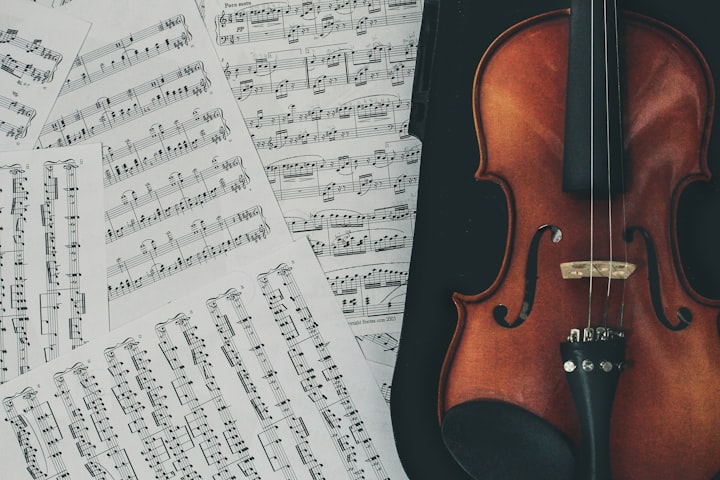
Recently, I chanced across a question on my Quora feed, 'Is memorization the goal/approach in learning a piece?'. Since it is a question about music and I figured I have a perspective to offer, I added it into my drafts and spent some time crafting my answer. After some time of writing and editing, I submitted my answer. I'm honestly quite pleased with how my answer turned out.
In the answer, I took it from two different perspectives. I very briefly (the one opening line) answered the question with 'Sort of, because what you don't remember, you don't really know.' This is true to some extent. If you can't remember how to play it, do you still know how to play it? Would you still be able to perform it without a score?
I proceeded to give an alternative perspective on how this is not always the case. Each piece contains different sets of techniques and concepts to teach you. Merely memorising each piece would not be the most helpful way. Sure, you may be able to play them perfectly from memory, but you can't possibly store them forever. If technique and musical expression were neglected in the process, memorising the notes and rhythm doesn't really serve the full learning objective in learning a piece of music.
The examples I gave in the Quora Answer to demonstrate my point includes two of Chopin's Etudes in the classical piano repertoire (pieces). Etudes are pieces composed to drill technical skills. They're technical exercises in the form of musical pieces. These two etudes of Chopin are beautiful pieces of work that still remain popular among pianists today. Almost every pianist I know loves Chopin, including me. I'm currently working on the Aeolian Harp Etude for this semester, which you might have heard before. These are the two examples I gave. Time to appreciate some classical music from me.
Here's what the Aeolian Harp Etude (Opus 25 No. 1) by Chopin sounds like.
And here's what the WaterFall Etude (Opus 10 No. 1) by Chopin Sounds like
So, how does this relate to life lessons? Each piece of music we learn equates to each experience we go through in life. Each piece of music is different, has its own character, demands different skills, techniques, and amounts of time to learn them. Each of them serves a very different learning (and performing) experience. Just like in life, everything we go through, however similar, is not always exactly the same. Each phase takes up a different amount of time before it ends too.
Each experience serves a different purpose
Each experience serves as a stepping stone to help us navigate through our paths while teaching us different lessons. Along the way, we also develop different skill sets. Having a toxic friend makes us realise what toxicity is and how we can better protect ourselves. Trying out something and realise it doesn't work teaches us what suits us and what doesn't.
It also depends on our learning goals in life. If there was a particular skill set you want to develop or a career you want to get into, you pick a particular method to do it. You might also attend professional courses for upgrading or start building client bases online first. All these are the equivalent of seeking to develop certain techniques and picking out pieces that are designed around that goal. You seek out the experience that resonates with your goal. You design that path for yourself.
They're all just a stepping stone and do not always possess equal importance. Also, some things just happen. Just because.
As with a stepping stone, you don't always remember everything you learn. Maybe not the entire experience, just the takeaways at the end of the day. Other times, it's just an experience. Some things just come and go. Not everything is meant to teach you something. Sometimes things happen just because. Not everything is always as important as the others. You just learn certain pieces even if it teaches you nothing. Sometimes it's what makes you happy. Not everything has to be serious.
Difference in attitudes and approach: Professional vs Non Professional
However, there's also a difference in approach if you are seeking to be a professional. I mentioned in the answer that Professional musicians under different circumstances (different gig requirements) are required to memorise their music. Though it may not be of the utmost importance as a student taking private exams (like most people do). To be a professional, approaches and attitudes have to be different about you. Memorising is just one of them as a musician.
Coda - a passage at the end that concludes a piece of music
Being an artist, a musician, is a part of living life through our art forms. As we live life, we learn that many elements within art relate to life more than we thought, beyond just art being inspired by life. These are just three of these lessons I learnt from being a musician and writing that answer — which I'm glad I did. Each experience does serve a different purpose, whether as a stepping stone or to teach you how to approach things. And writing does make me think more about how the things I do relate to the life I live as a whole. I'm glad I started this journey by learning how to write. This piece has been a great pleasure to write. I hope you enjoyed it as much as I did. Thanks for making it this far.
Here's the link to the orignal Quora answer that inspired this article. Answer contains technical music terms and examples.
Original article was first published on Medium with slight changes.
About the Creator
Ashley
Musician | Latin Dancer | Animal Lover | A Creative | Avid Reader | Writer. I write about everything I am, everything I do and more, on life in general.






Comments
There are no comments for this story
Be the first to respond and start the conversation.